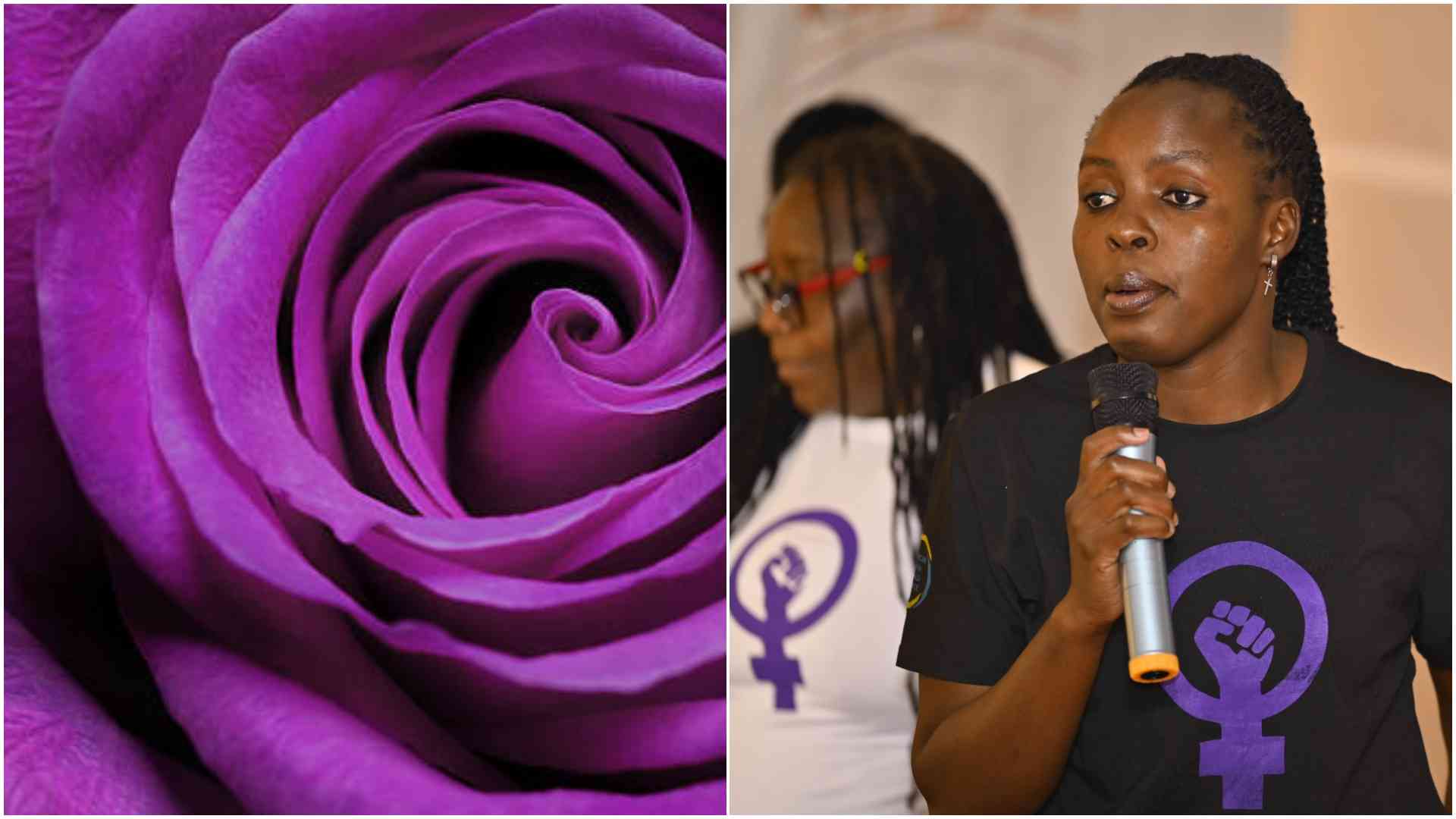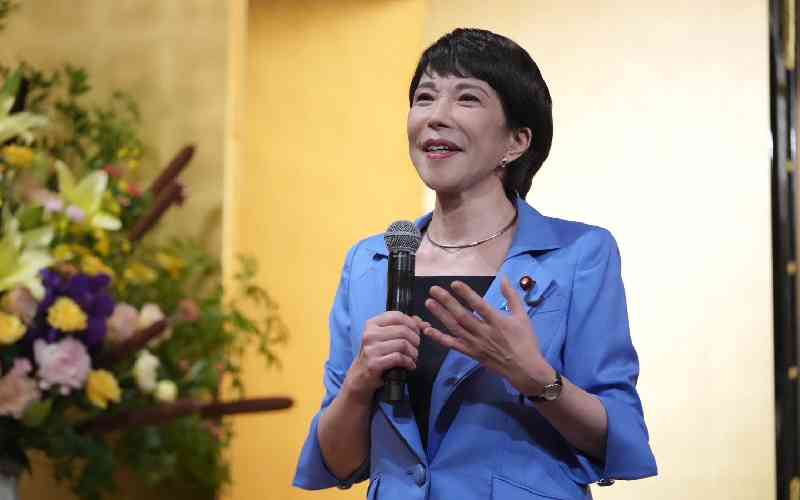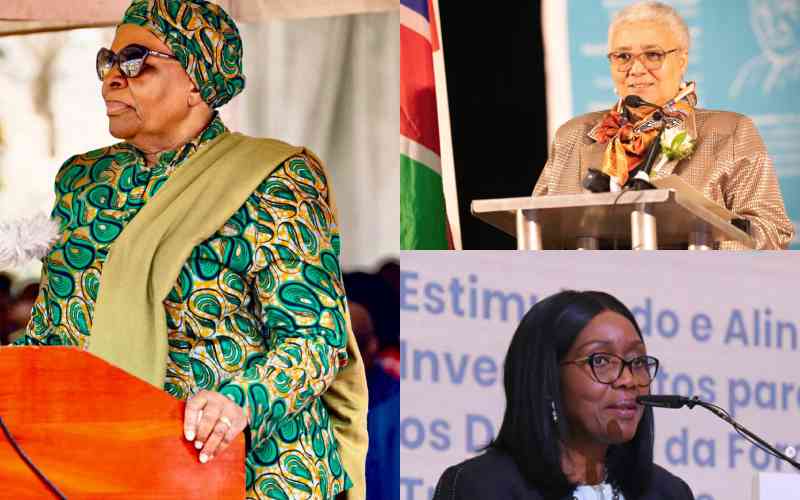
It is said we should never despise small, humble beginnings because with time we could reap a greater harvest than we anticipated from those little modest steps.
And Esther Gacicio can attest to this. What began as a humble affair has seen her make a mark in the society today.
The Assistant Director of E-learning at the Kenya Institute of Curriculum Development recently bagged a prestigious global award, Excellence in e-Learning Award, for her efforts and involvement in various e-Learning activities in the region and globally.
The award has set her on the global stage and as her star continues to shine brighter; her greatest zeal is to do more for the society.
"I am happy to have received this award which I must say came as a surprise. Honestly, I was not expecting it," quips Esther who is also a curriculum specialist and e-learning expert.
"One day while seated in the office an e-mail popped up in my inbox but I ignored it. Then I saw it again and went ahead to read it. The message seemed too good to be true. I just couldn't believe it. The doubt I had saw me forward the email to a couple of my friends and they all started congratulating me. I had been named as a winner of the e-learning award and what was needed was for me to travel to India to receive it. Up to now, I still wonder how it came along!"
For Esther, winning the award entrenches her belief that whatever little thing you do counts regardless of your position.You can be forgiven for thinking that her journey of self-discovery has been a one-way ticket to the sunny side of life. However, it hasn't all been rosy.
Born 45 years ago in Nairobi (and partly raised in Nyeri), Esther grew up as the eldest of five children, three boys and two girls. Her life began with low drama.Her father was a marketer for an oil farm, a job that required lots of movement from one town to another. Her mother, a businesswoman, was the disciplinarian in their family. "Just as we were getting used to a new place, dad would break the news that he had been assigned work in another town and that meant moving. My early childhood was marred with lots of moving around. My parents were staunch Christians and taught us the value of hard work," she says.

When her family settled in Nyeri, Esther went on to complete her primary education at Tetu Girls Primary School and later joined Kangumbiri Girls High School. In 1991, she joined Moi University to pursue a degree in education. Esther, a mother and a wife to Chris Gacicio also holds a Masters in Education from the University of Nairobi and a graduate diploma in Leadership Development in ICT and Knowledge Society from the Dublin City University. "After graduating from campus in 1994, I worked at Aga Khan Hospital for six months in the administration department. I would later be posted by the government to Wandumbi Secondary School in Nyeri where I began my teaching career," she says.
Esther adds: "It was a small school with only 28 students when I joined. I was used to a fast life while at Aga Khan but the school ushered in a different experience. There was no diversity; nor a history of students performing well in exams. I thought of what to do to salvage the situation. In partnership with the Kenya Red Cross, we began several programmes to mentor the youth and with time the number of students enrolling in the school increased significantly. They had now begun to realise the importance of education."
In 1998, Esther was transferred by the Teachers Service Commission to the Kenya Institute of Curriculum Development (formerly Kenya Institute of Education). "I was placed in the teacher education section which basically involved developing curriculum for teachers. At around that time, I initiated my first project, drug preventive education since there were numerous cases of drug abuse in schools. We were trying to instill life skills to young people so that they are able to say no to drugs," explains Esther.
In 2006, she was moved to the media department in the e-learning section, a move that came as a sigh of relief due to some challenges she had been facing in the former department. She opines: "From 1998 while in the curriculum development I was about to tender my resignation but my boss decided to move me to another department. I was technophobic. I hated computers. I remember asking my boss that I did not request for deployment but he encouraged me to give it a shot."
After undergoing several training sessions on how to develop digital content, Esther fell in love with her new role hence decided to stay put. Shortly thereafter, she was nominated by the institute to go to Sri Lanka for studies in e-learning technology and this changed her perception on computers and e-learning as a whole. "While in Sri Lanka, I learnt how to develop online courses and initiate them, as well as use the open resources for teaching and learning. At that time, many countries would not want to go that route because of the cost involved in setting up e-learning programmes," says Esther.
She explains: "When I came back home I thought of coming up with a three months programme (Online Staff Induction Course) to train the KICD staff. I teamed up with Ben, a colleague and ICT specialist, to design the programme. We had many challenges, from financial constraints, few computers, small server space, but that did not dampen our spirits. Luckily, Ben was able to reconstruct two wasted computers, develop a server and we stored our content. The head of department was very impressed with our idea and we thought we could expand it. With the support of the management, we got more staff and computers hence developed the programme further." According to Esther, they then thought of inducting teachers online and expose them to the same content. They kicked off with the primary teacher orientation programme since they are the ones that handle children at a lower level and help to lay a foundation for their education.
They dubbed the programme 'Elimika' and it has become their formal course since it began in 2009. Their first class of 100 students graduated in 2012. However, it didn't start off without challenges. "The first time we called for a meeting with the teachers none of them showed up. The second time we approached head teachers in several schools in Nairobi to give us some students (the teachers). Other teachers from other counties got to learn of the programme and turned up in good numbers. We had purposed to have 100 teachers but we got 200. At some point I was forced to close the register because the number was so big," says Esther.
Esther is proud of the 'Elimika' programme and how it has changed the lives of teachers across the country. A case in point is the story of a teacher by the name Zachary. "On one particular day he approached me with a new laptop. He already had an email address. We unwrapped the laptop and I took him through the process of registering into the programme. A week after visiting my office he kept calling me asking questions whenever he encountered challenges. Suddenly, I stopped getting calls from Zachary but when I checked in my system I could see that he was still taking part in the course. Today he is a pro and has become our Elimika ambassador. I shed tears of happiness when I think of teachers such as Zachary accepting to use technology," she says.
The programme won the 2011 Technology in Government in Africa (TIGA) award under ICT in education. She is currently working on the digital literacy programme whereby she is coordinating capacity building for the training of teachers once the laptop project rolls out.
She also hopes to start a programme on women in technology to train women on how they can make use of gadgets such as smart phones to identify opportunities available in different sectors. Despite her remarkable achievements, Esther is quick to point out that the journey to success has not been without any challenges. She says many people are coming in to embrace e-learning but the concept which is more than just providing content is not well understood. Her other challenge, she says is "changing the attitude of teachers as they think computers are here to replace them."
 The Standard Group Plc is a multi-media organization with investments in media
platforms spanning newspaper print
operations, television, radio broadcasting, digital and online services. The
Standard Group is recognized as a
leading multi-media house in Kenya with a key influence in matters of national
and international interest.
The Standard Group Plc is a multi-media organization with investments in media
platforms spanning newspaper print
operations, television, radio broadcasting, digital and online services. The
Standard Group is recognized as a
leading multi-media house in Kenya with a key influence in matters of national
and international interest.










